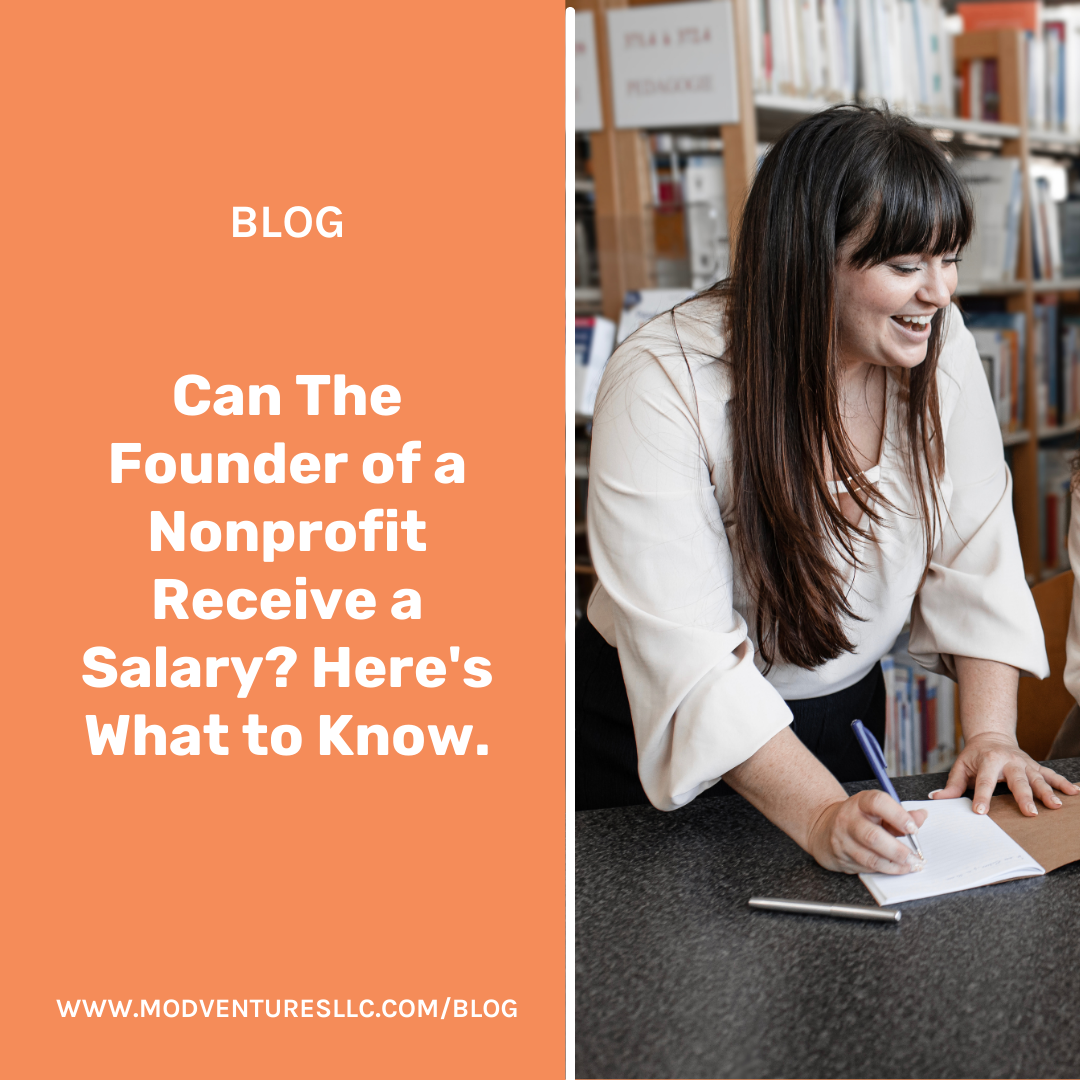By: Gabrielle Luoma CPA, CGMA
By: Gabrielle Luoma CPA, CGMA
The role of a nonprofit founder is often filled with passion, dedication, and a deep commitment to the mission of the organization. However, the question of whether a founder can receive a salary is a common one—and it’s more complex than you might think.
Let’s break down what you need to know about nonprofit founder compensation, the rules surrounding it, and how to navigate this sensitive issue.
Can the Founder of a Nonprofit Receive a Salary? Understanding Nonprofit Compensation Rules
Yes, the founder of a nonprofit can receive a salary, but there are specific guidelines and regulations that must be followed to ensure compliance with IRS rules. The IRS allows nonprofit founders to receive reasonable compensation for the work they do, as long as it is justified and aligns with the organization’s resources and mission.
Compensation must reflect the fair market value for the services provided. This means the salary should be comparable to what others in similar positions, with similar skills and experience, would earn at comparable organizations. The nonprofit’s board of directors typically decides on the compensation, and it must be thoroughly documented and justified to avoid any appearance of impropriety.
Determining Reasonable Compensation
To determine reasonable compensation, nonprofits should conduct a salary study or compensation analysis. This involves reviewing salaries of similar positions in comparable organizations to ensure that the founder’s salary aligns with industry standards. Nonprofits can use salary surveys, consult compensation databases, or hire external experts to assist in this process.
It’s also essential that the salary is approved by an independent board of directors or a compensation committee that does not include the founder. This independent review process helps ensure that the compensation is fair, unbiased, and free from conflicts of interest.
Avoiding Private Inurement and Conflicts of Interest
One of the biggest concerns when compensating a nonprofit founder is avoiding private inurement, which occurs when an individual in a position of control or influence within the nonprofit receives undue financial benefits from the organization. Private inurement is strictly prohibited by the IRS and can lead to severe penalties, including the loss of tax-exempt status.
To avoid private inurement, nonprofits must document all decisions related to compensation. Meeting minutes should clearly reflect the discussions, the rationale behind the salary, and how it was determined to be reasonable. Transparency is key, and maintaining a clear record helps protect the nonprofit from potential scrutiny.
Balancing Compensation with Mission
While compensating the founder is legal and often necessary, it’s crucial for the nonprofit to balance salary decisions with the organization’s financial health and mission priorities. High salaries that consume a significant portion of the budget can raise red flags among donors, grantors, and regulatory bodies. This is why it’s important to ensure that compensation does not detract from the resources needed to fulfill the nonprofit’s mission.
Founders should be prepared to justify their salaries not only to the board but also to stakeholders, demonstrating how their leadership and work contribute directly to the organization’s success and impact.
The Importance of Transparency
Transparency around compensation is essential for maintaining trust and credibility with stakeholders. Nonprofits are required to disclose the salaries of top executives, including founders, on their IRS Form 990, which is a publicly available document. Being open about compensation practices can help foster a culture of accountability and trust.
Proactively communicating with donors, members, and the public about how compensation decisions are made and how they support the nonprofit’s mission can go a long way in building confidence in the organization’s governance.
Can the Founder of a Nonprofit Receive a Salary? Final Thoughts
Yes, a nonprofit founder can receive a salary, but it must be handled with care, transparency, and compliance with IRS regulations.
Ensuring that compensation is reasonable, independently approved, and well-documented protects the nonprofit from potential legal and financial risks. By maintaining clear and fair compensation practices, nonprofits can continue to attract and retain the talented leadership needed to fulfill their mission.
If you’re navigating compensation decisions for your nonprofit, consider consulting with a financial advisor or nonprofit expert to ensure you adhere to best practices and regulatory requirements. This guidance can help safeguard your organization and ensure its continued success and impact.
Need help navigating reasonable compensation in your nonprofit? Connect with the MOD VENTURES LLC Team today!
You May Also Love
CLOSE






